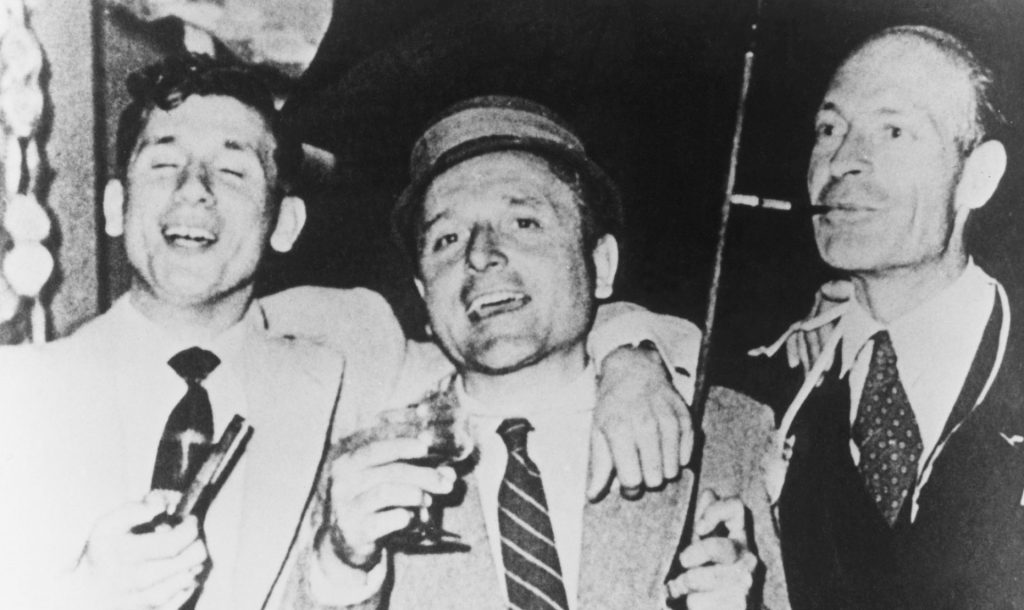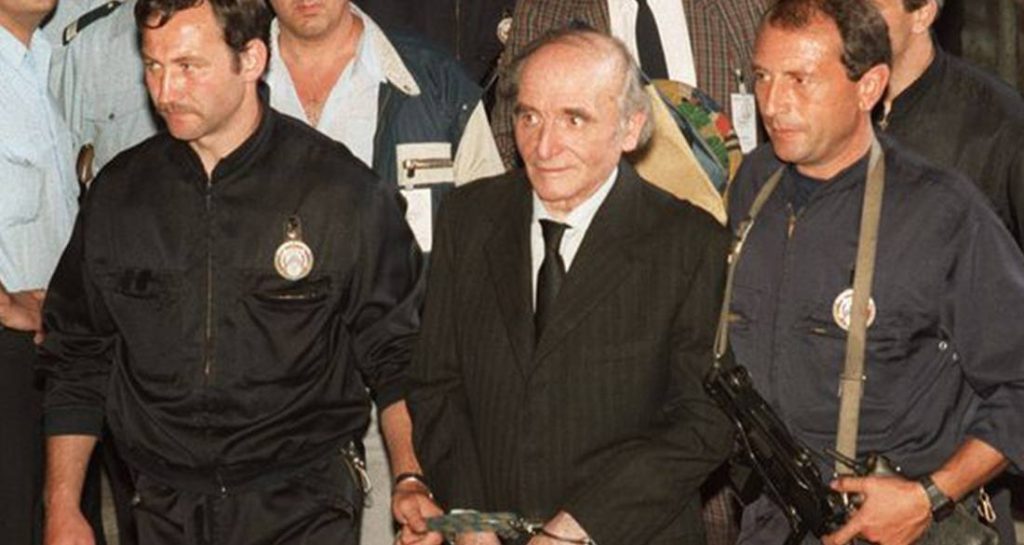Many would assume that stories of war criminals end when the war is over, for some, that is far from the case. The man we’ll discover in this segment of War Criminals found a new violent career as his former employer burned in the ashes of Berlin. His name was Klaus Barbie, also known as ‘the butcher of Lyon.’
On the 25 October 1913, in the city of Bad Godesberg near the French border, Nikolaus “Klaus” Barbie was born. His family were French Roman Catholics named Barbier, who are believed to have fled France during the French Revolution. Barbie’s father, who shared the same first name, was deployed to the Western Front during WW1 and found himself at the hellish battle of Verdun, where German and French forces suffered 750,000 casualties between them. Klaus senior was wounded in the neck and became a POW of the French, a nation he despised. His health never recovered, and he returned home angry, bitter and a raging alcoholic who would routinely abuse his children.
At the age of 22, after his father had passed away, Barbie joined the SS and was soon assigned to the infamous Sicherheitsdienst (SD), the SS security service. The focus of the SD was to monitor and challenge threats to the Nazi party directly rather than the government which was the job of the Gestapo. It was led by the infamous SS officer Reinhard Heydrich, also known as ”The Hangman of Prague”.
As the Second World War progressed and Germany swiftly occupied the Netherlands, Barbie was sent to Amsterdam and assigned to Adolf Eichmann’s IV/B-4 department which was responsible for identification, roundup and deportation of Dutch Jews and Freemasons. Barbie is said to have carried out this role with ruthless efficiency, and this did not go unnoticed. At the young age of 29, Barbie was assigned as the head of the Gestapo in the French city of Lyon.
It was in Lyon where Barbie’s gruesome career and subsequent infamy soon took hold. At his headquarters, he personally tortured and executed prisoners of all ages. A prominent French Resistance leader in Lyon was captured before being beaten, skinned alive, drowned in a bucket of Ammonia. Barbie was estimated to have slaughtered around 14,000 people in the Lyon area, it didn’t take long for him to earn the nickname ”Butcher of Lyon” and in 1943 he was personally awarded the Iron Cross 1st class for his ruthless campaign against the French resistance and the capture of prominent and high ranking resistance leader, Jean Moulin.
After the war, Barbie found a rather unlikely new employer: the USA. Barbie was seized by American authorities, who recruited him in 1947 for counterintelligence and anti-communist work. He was housed in a hotel in Memmingen, and used to pass on information about French intelligence activities in the French zone of occupied Germany due to the US being suspicious that the French had been infiltrated by communists.
The French, who had sentenced Barbie to death in absentia for war crimes, soon realized that the US was hiding him and begged them to hand him over. The US, however, couldn’t risk it because Barbie knew too much about the network of German spies that America had planted in a huge array of European communist organizations. So instead, Barbie and his family were quietly removed from Germany and sent to Bolivia via US intelligence services.
Barbie quickly settled in well in Bolivia, adopting the new name of Klaus Altmann. He soon formed strong relationships with Bolivian officials in the highest echelons of government, including the country’s infamous dictators: Hugo Banzer and Luis García Meza Tejada.
Barbie assisted the Bolivian government in their repression against communist and left-wing groups. He tutored them on SS methods of torture, interrogation and intelligence work. He assisted in arrests, torture and murders of opposition groups. Many Journalists who dared to speak out against the regime’s crimes were arrested and or simply disappeared.
Many who met Barbie whilst he was in Bolivia confirmed that he had not changed and was still a firm and fanatic believer in the Nazi ideology. Naturally, Barbie held a keen interest in the ongoing global manhunt for Josef Mengele and Adolf Eichmann, who were charged with facilitating and carrying out gruesome crimes against humanity during the holocaust. Barbie supported them both and wanted to assist them to remain in hiding; however, he could.
In 1971, Barbie was identified by French Nazi hunters and survivors of his torture. His photograph and information on his alias was published in a French newspaper, and soon France was baying for Barbie’s blood. However, Bolivia refused to extradite Barbie, who stuck to professing his innocence and reinforcing he was his alter ego Altmann. Journalists who then attempted to meet Barbie were often intercepted by armed paramilitary groups.
In a strange twist of fate, it was Barbie’s post-war exploits which saw him finally extradited to France. Evidence soon came to light that Barbie was actively a part of the “cocaine coup” of Luis Tejada when the regime forced its way to power in Bolivia in 1980. When the newly elected government of Hernán Siles Zuazo came to power in 1983, they arrested Barbie on flimsy charges and extradited him to stand trial in France.
Barbie’s trial was filmed for historical value, and he was tried on 41 separate counts of crimes against humanity. When facing his accusers, he stated that ”he had nothing to say” and even added: “When I stand before the throne of God, I shall be judged innocent.” On 4 July 1987, Barbie was found guilty and sentenced to life. After a short battle with cancer, He died in a Lyon prison at the age of 77.




